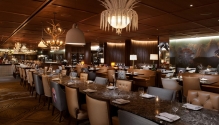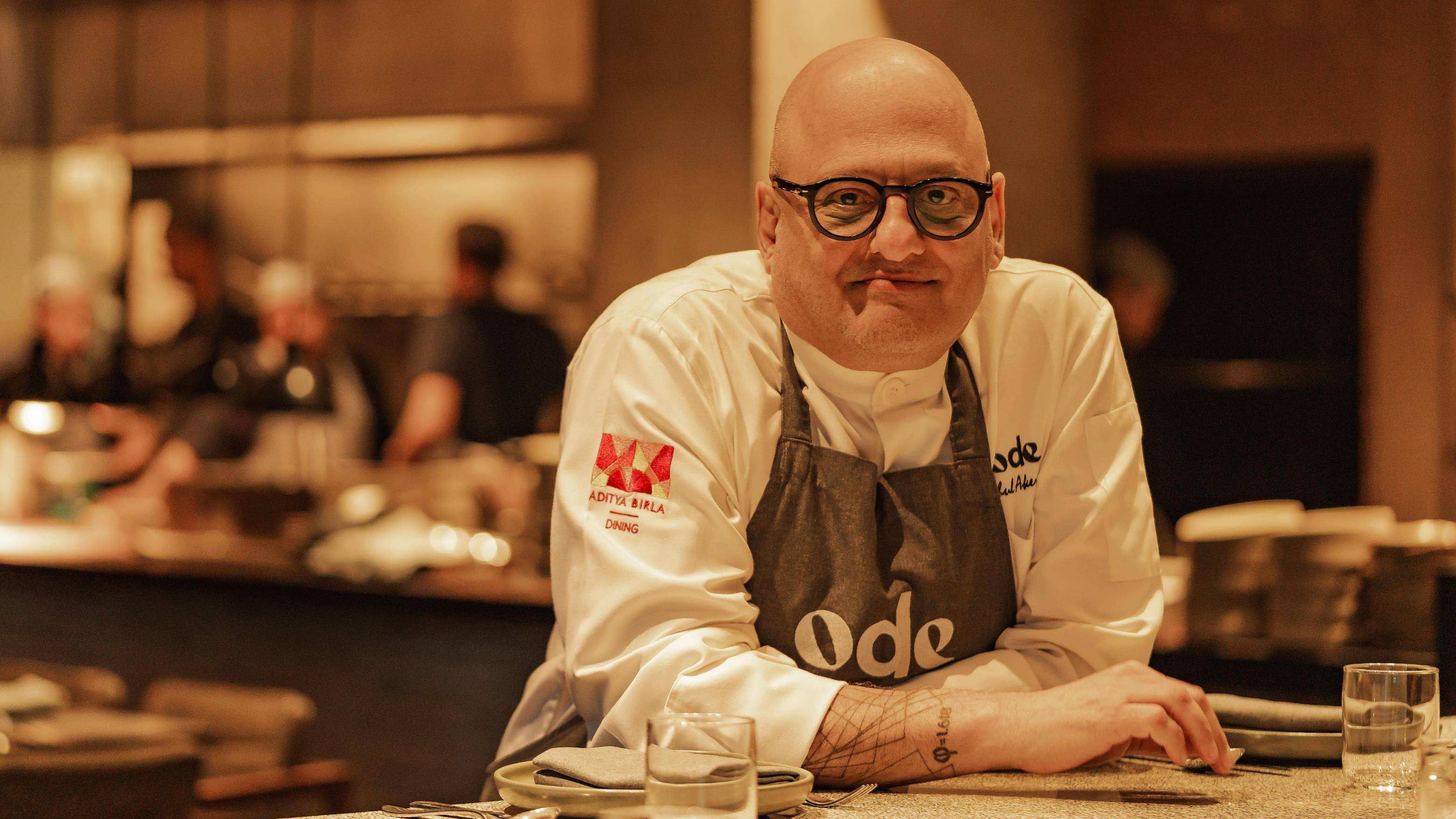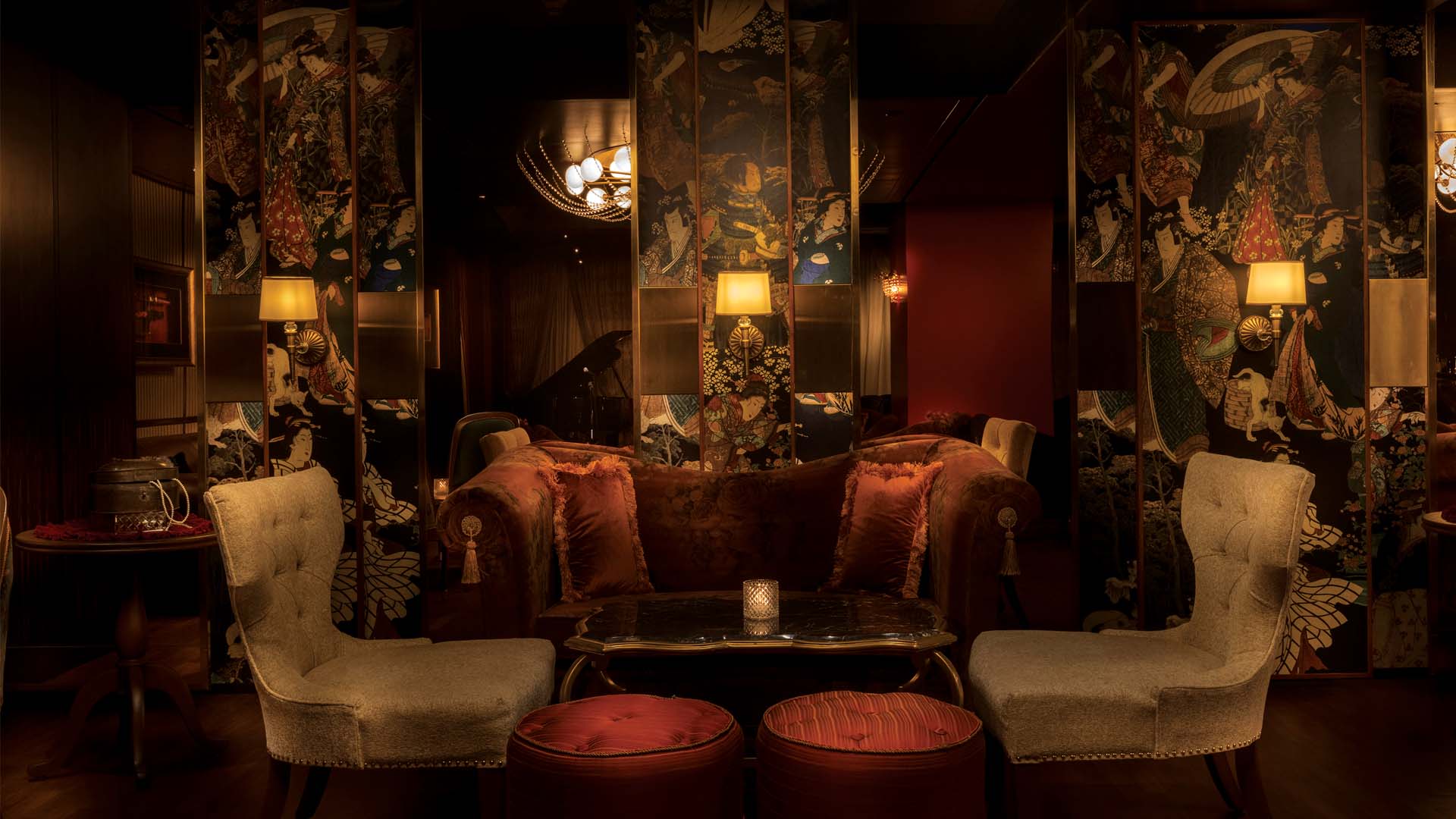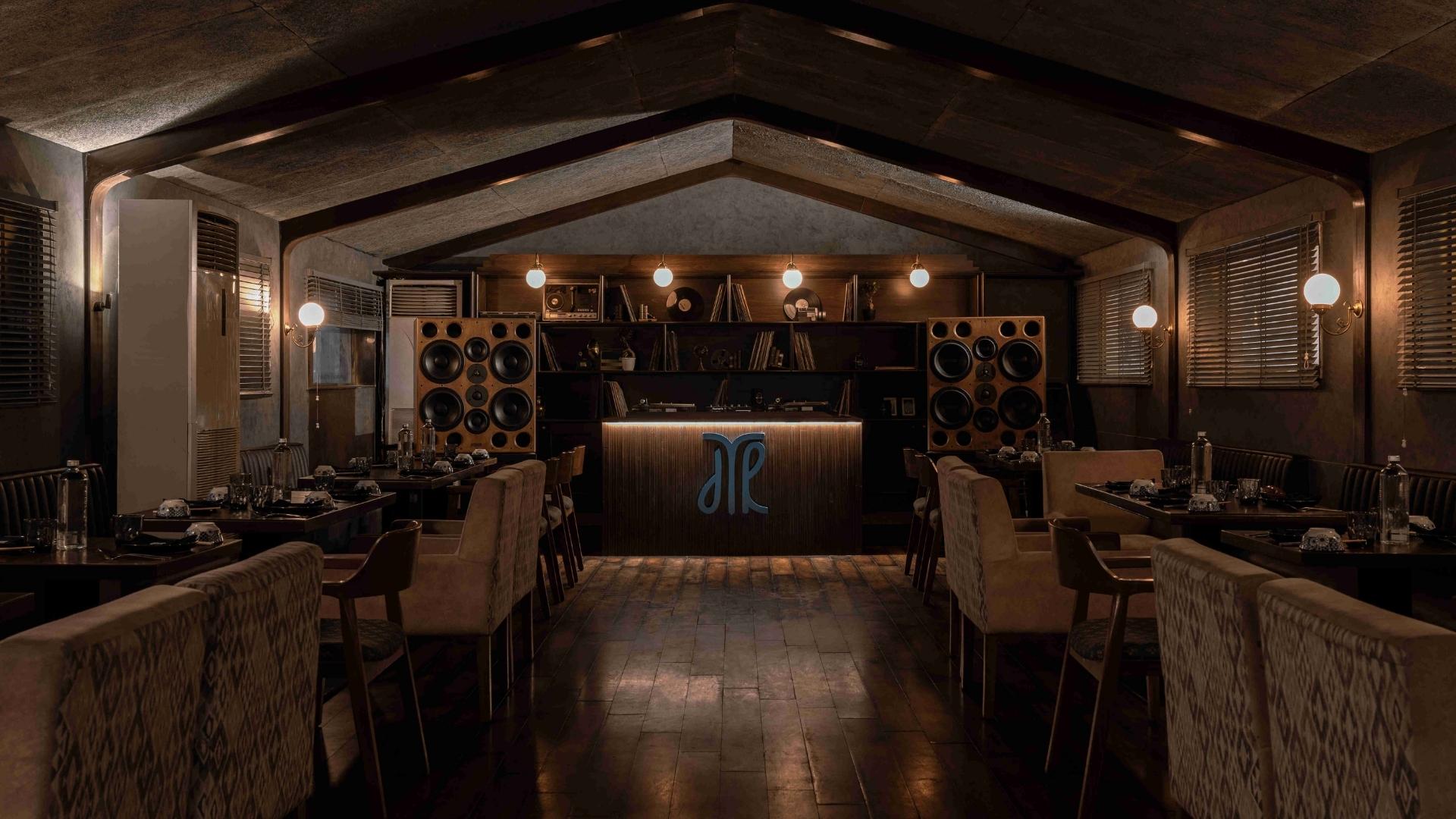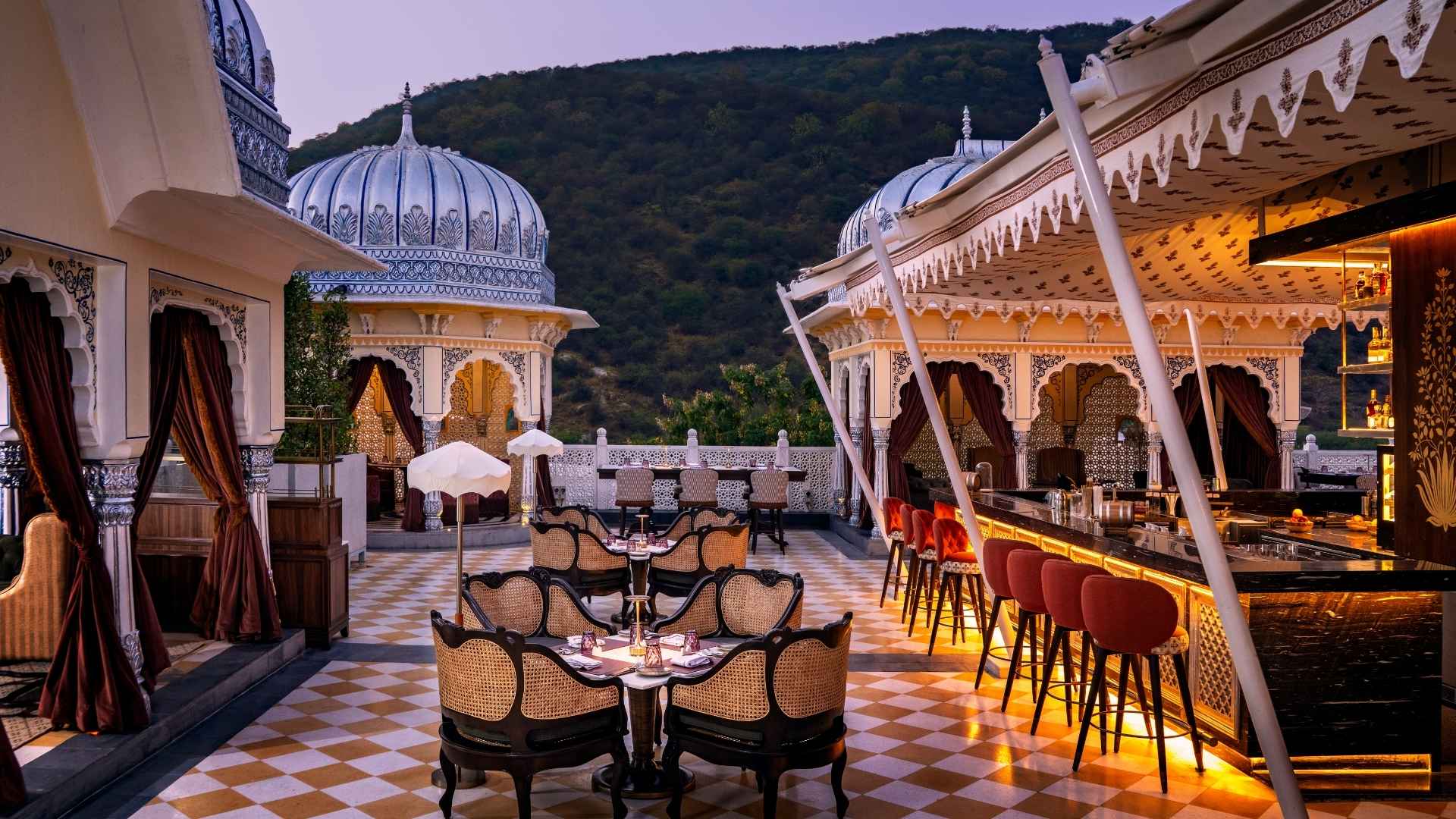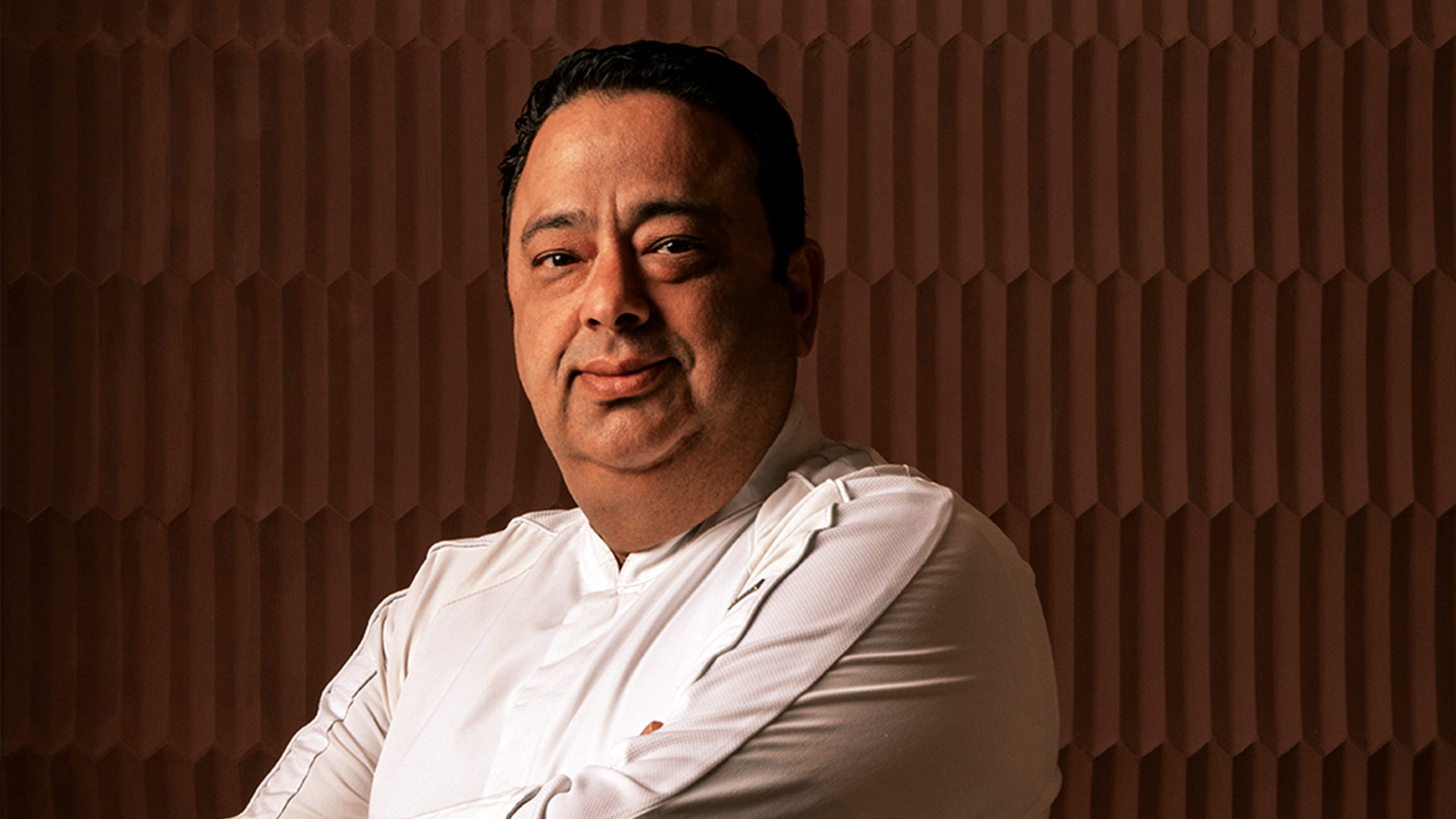Ode’s New Menu is a Continuation of My Journey: Chef Rahul Akerkar
Ode turns a new page with a refreshed menu, one that honours Chef Rahul Akerkar’s heritage while embracing inventive flavours and an expanded emphasis on plant-forward dining.
By Rachna Virdi
Ode, the fine-dining concept from Aditya Birla New Age Hospitality (ABNAH), part of the Aditya Birla Group, is helmed by the legendary Chef Rahul Akerkar. More than a restaurant, Ode is an experience — a space of warm textures, cloud-mesh lighting, and an open kitchen that draws guests into the rhythm of its craft. Set in Worli, Mumbai, it is both intimate and expressive, serving food that is instinctive, memory-driven, and deeply personal.
Since opening in December 2023, Ode has earned acclaim for its thoughtful interplay of Indian and European influences, brought to life in a modern, imaginative context. Now, with a refreshed menu, the restaurant turns a new page — one that honours Chef Akerkar’s heritage while embracing inventive flavours and an expanded emphasis on plant-forward dining.
With 22 new dishes—many vegetarian—each plate at Ode tells a story, from miso Napa Caesar with Maharashtrian dhondas to vegetarian carbonara inspired by his travels with his wife. Some flavours are familiar, others gently surprise, all carrying Ode’s signature blend of comfort, care, and thoughtful refinement. “This menu isn’t a pivot — it’s a continuation,” says the chef. “It’s about listening — to our guests, to those small, quiet moments that tell you when something just works. Care isn’t just what’s plated, it’s how we serve, how we evolve.”
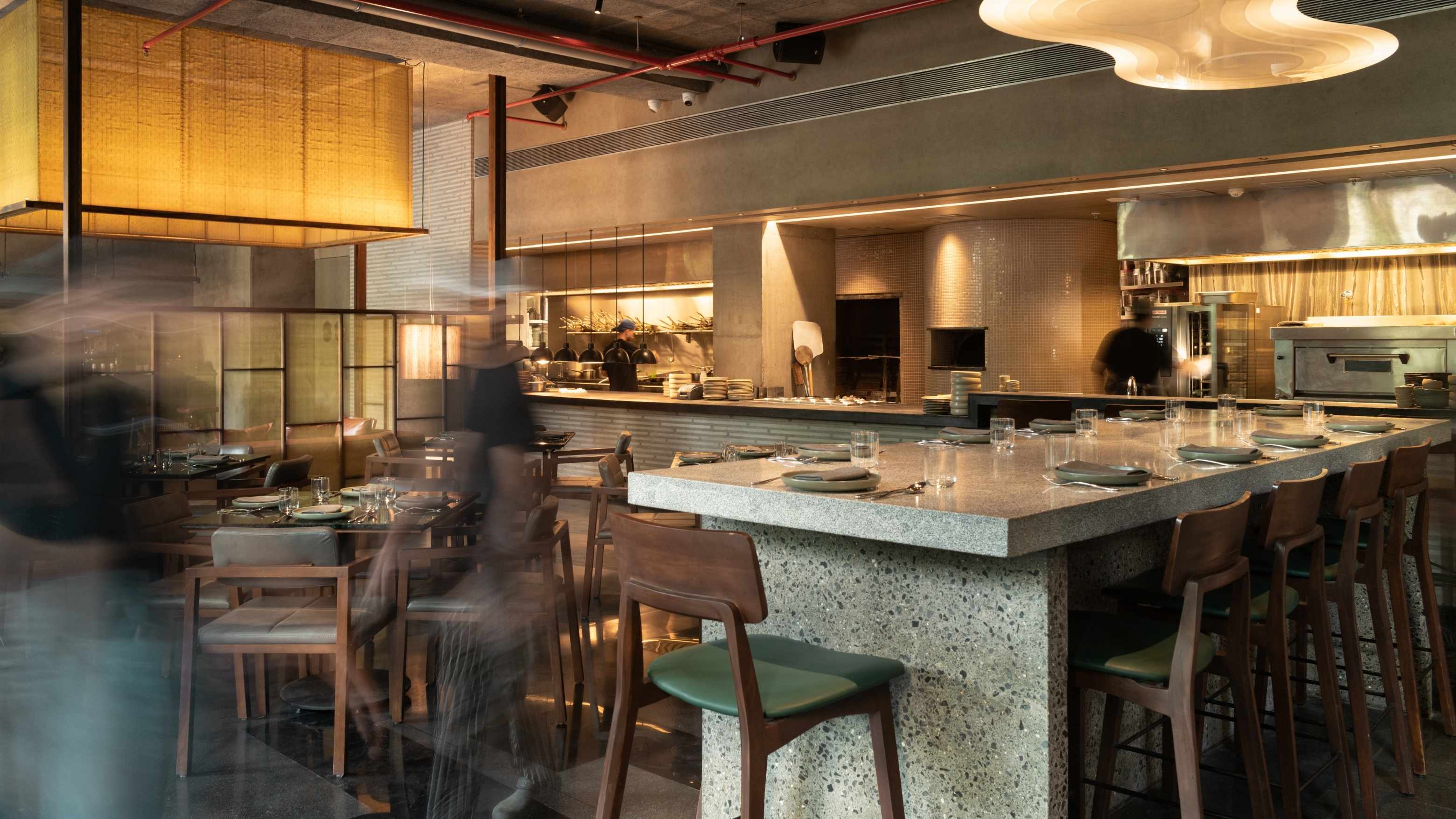
The immersive space with soft textures, cloud-lit ambience, and an open kitchen draws you into the rhythm of its craft.
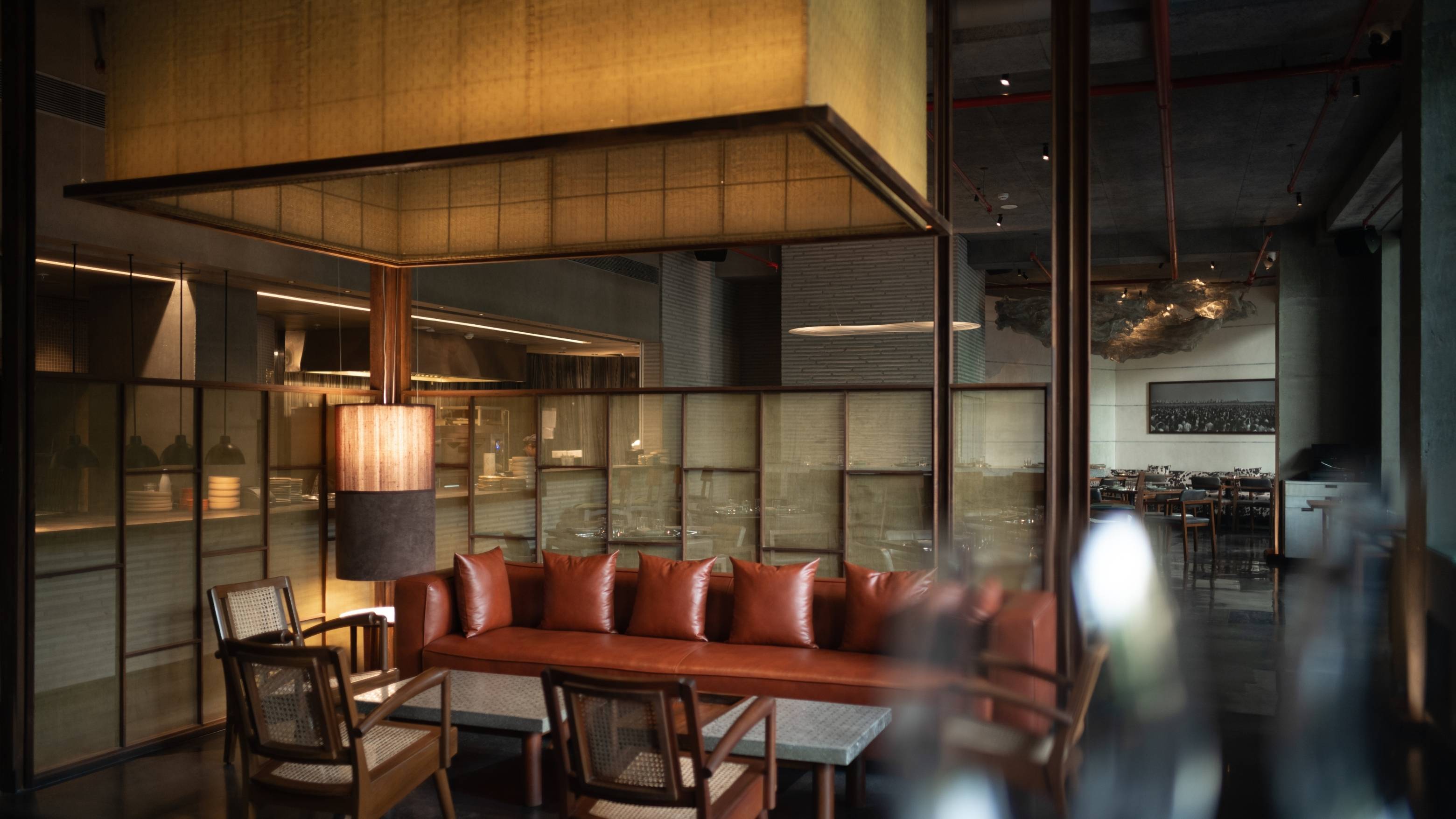
Ode enters a vibrant new chapter — blending Chef Akerkar’s culinary lineage with imaginative, produce-driven dishes.
Heritage Meets Innovation
The new menu is an articulation of Chef Akerkar’s journey, weaving together his mixed heritage and wide-ranging culinary influences. Familiar favourites — smoky BBQ Black Sesame Chicken Wings, Charred Prawns, Apricot Rum-Glazed Ribs — remain, but new creations bring fresh dimension.
The Bhavnagri Chili Tempura, filled with sweet potato and paired with romesco, carries a dramatic backstory. Bucatini Peperone “Carbonara” offers comfort in its simplicity. The Grilled Miso Napa Cabbage Caesar, topped with croutons made from dhondas (a traditional Maharashtrian cucumber cake inspired by his Aaji), embodies both nostalgia and ingenuity. “It is warm, soft, and subtly sweet, its umami lifted by optional bacon and complemented by the Beet Around the Bush cocktail — Ketel One, beetroot shrub, balsamic, and kahwa tea,” notes the chef.
Elsewhere, Ulli Theeyal-inspired shallots enrich a Spiced Buff Tenderloin, fig mostarda lifts Pulled Duck and Arugula, and lobster risotto is balanced by the Djinn Gin — a floral, citrusy mix of Gordon’s, kumquat, kaffir lime leaf, jasmine, and tonic.
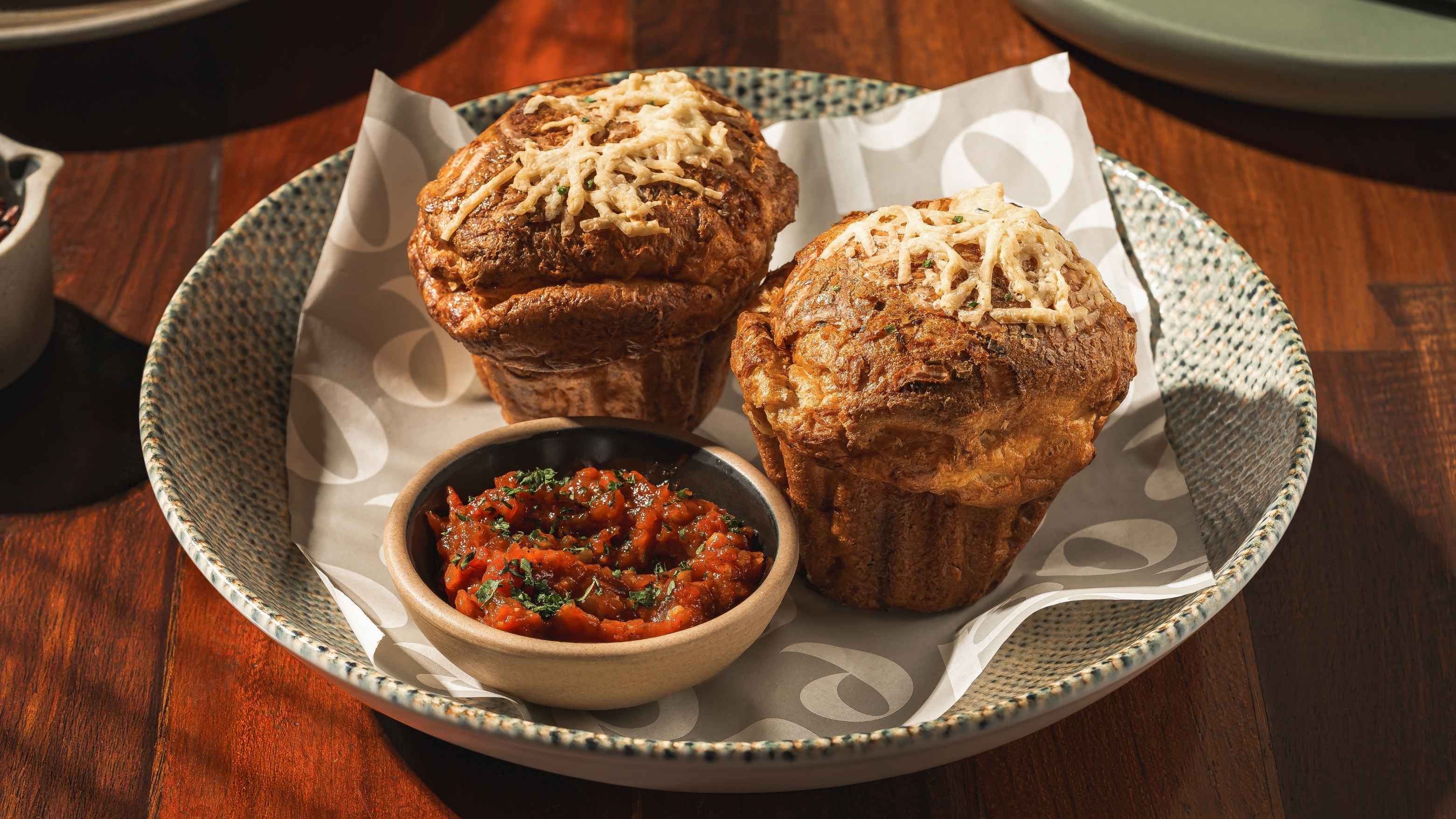
Gruyère Corn Popovers bring a crispy edge, a cheesy heart, and a whisper of sweetness in every bite.
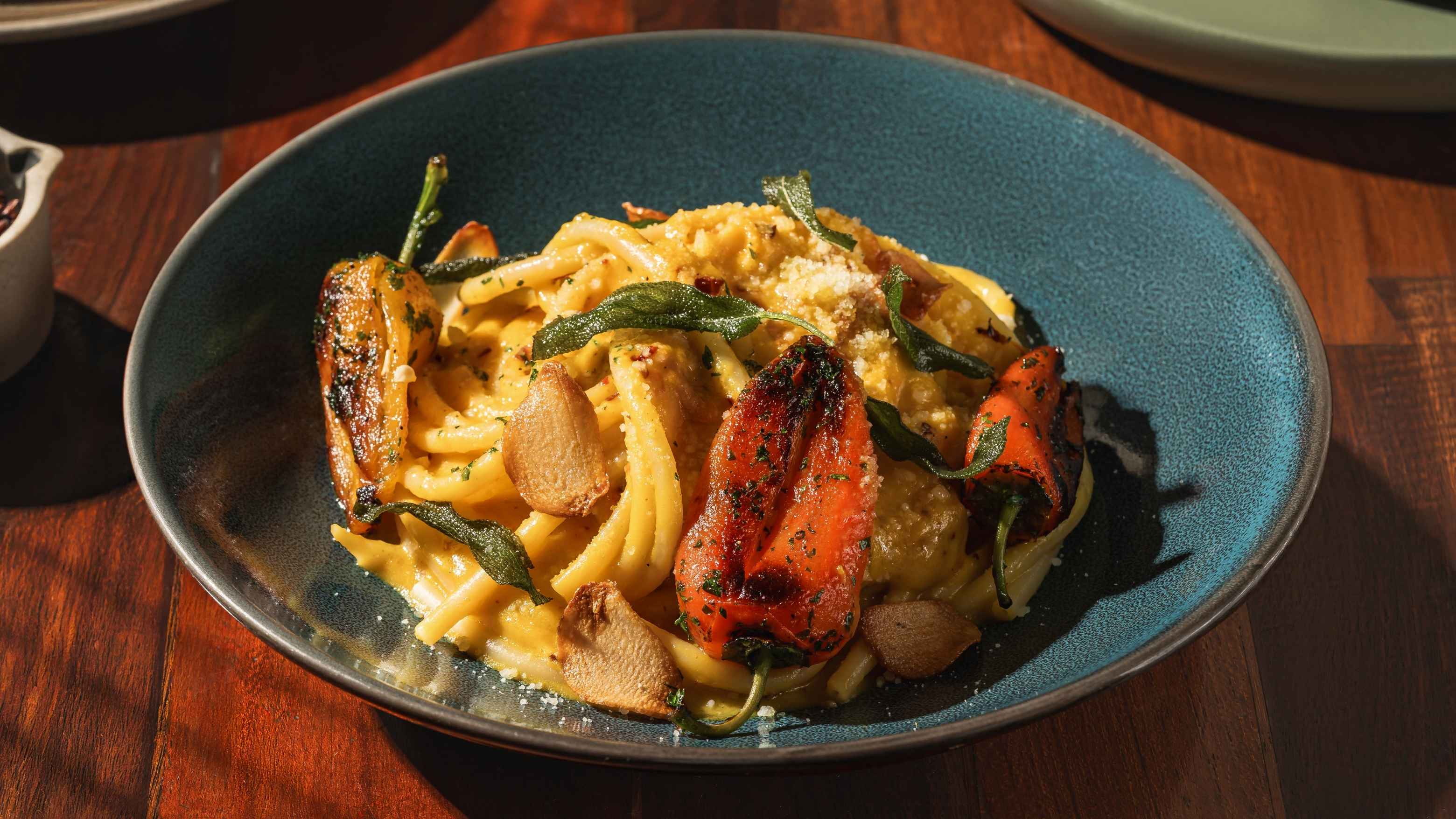
Bucatini Peperone Carbonara is a bold twist on tradition. “My wife’s vegetarian, so we skipped carbonara in Italy. This one’s for her,” he says.
Memories Reimagined
Some dishes channel Chef Akerkar’s fondest memories. The Ode to Prawn Cocktail nods to New York’s Monkey Bar, where cold shrimp cocktails and beer were once a ritual. At Ode, it’s reborn with creamy layers of devilled egg, tobiko, and warm brioche, finished with playful shoestring fries. Its companion is the Bleating Russki, a cocktail blending Ketel One, goat cheese, cockscomb, and strawberry — balancing sweet, savoury, and floral notes.
Desserts follow a quiet indulgence — Dark Chocolate Basque Cheesecake, Vegan Chocolate Fudge Cake, and Truffle Crème Brûlée — offering comfort in every bite.
SOH had an exclusive conversation with Chef Rahul Akerkar on the new menu inspired by his travels and experiences. Some excerpts:
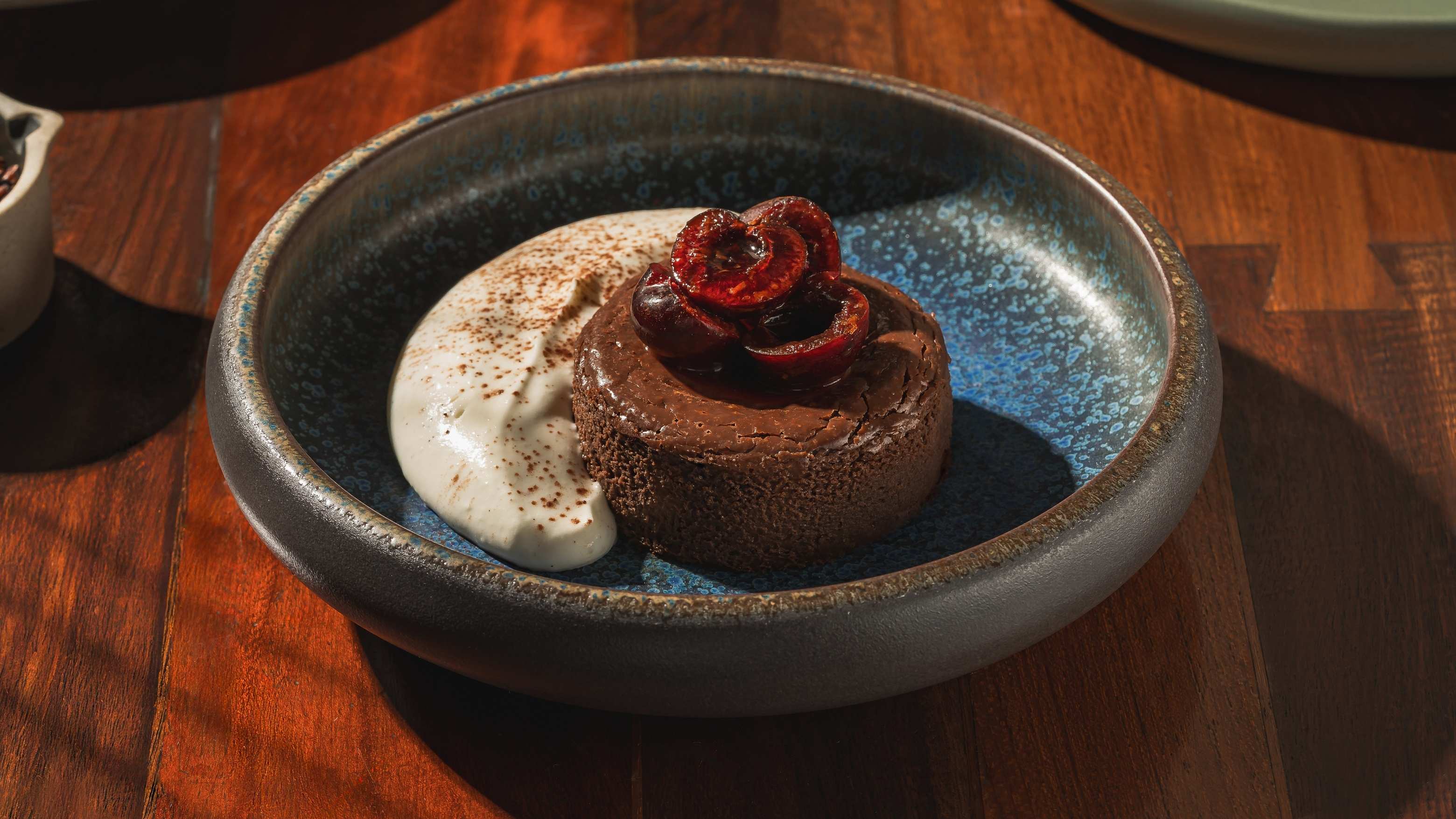
Desserts like the Dark Chocolate Basque Cheesecake aren't built to impress — they’re designed to soothe, to linger, to end the meal with warmth.
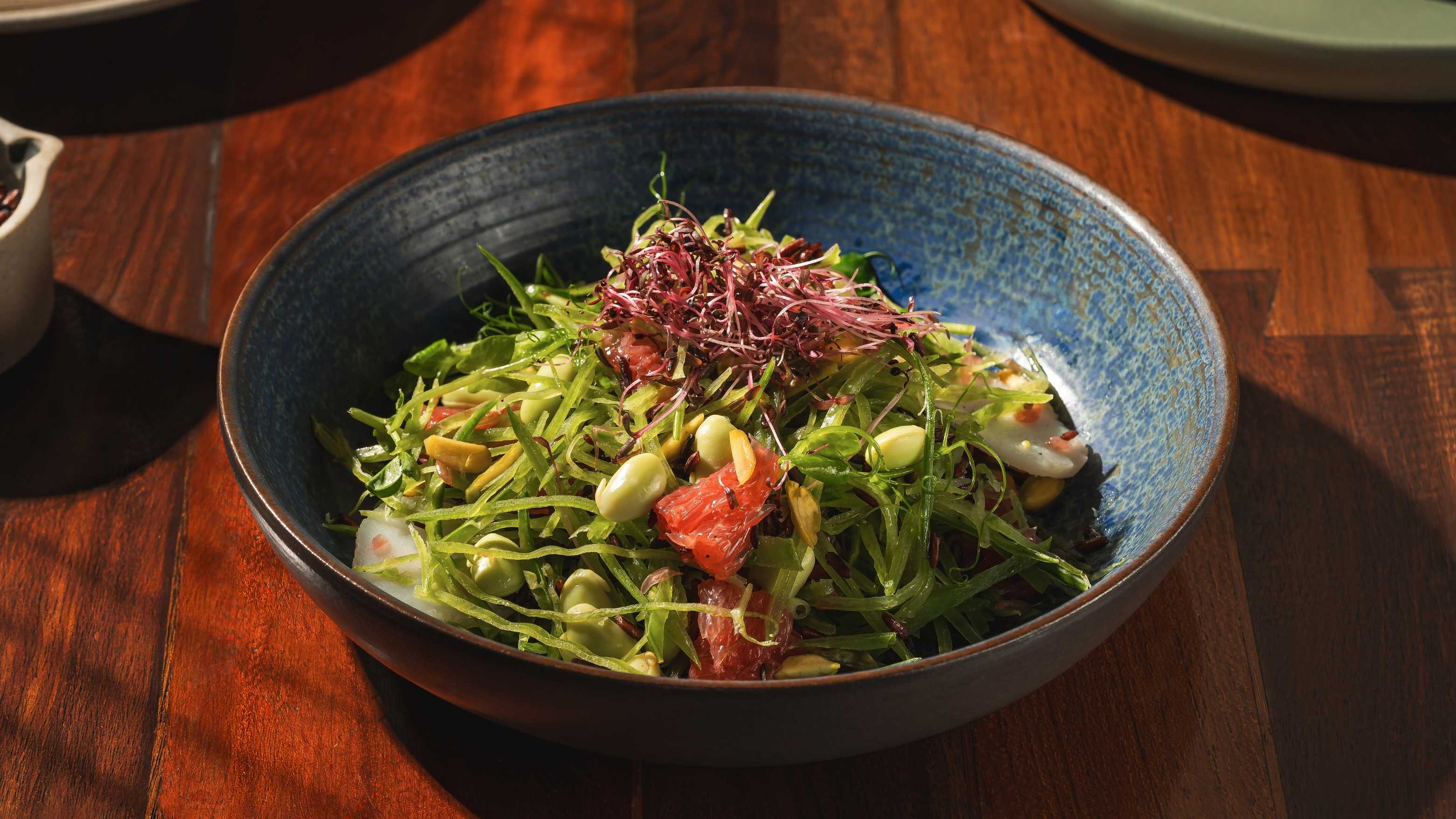
Bright, crisp, and green-forward — Snow pea and edamame come together in a dish that’s equal parts freshness and finesse.
How travel flavours Chef Rahul Akerkar’s life and cuisine?
Wherever I travel, I make it a point to eat — to taste, to try, to discover. My parents raised me with a simple philosophy: never say no to food. In our family, we had what we called the “No Thank You Bite” — if something was new or unfamiliar, you had to take at least one bite. Only after that could you politely say, “no, thank you.” It’s a habit that’s shaped my palate and my openness to flavours. Street food especially excites me — it’s honest, it’s raw, and it tells the truest story of a place and its people.
What are your favourite places of travel that helped you shape your food choices and build a menu around memory and connection?
Italy and Spain have always been touchstones for me — their food cultures thrive on simplicity, seasonality, and conviviality. Those experiences have shaped the way I think about flavour and memory at the table.
An Ode To You, a new chapter for Ode is an extension of your travels and experiences. Can you shed light on the new menu.
The new menu is a continuation of my journey — memories on plates, inspired by places I’ve been and people I’ve met. It’s rooted in comfort yet shaped by discovery, designed to feel both familiar and surprising simultaneously.
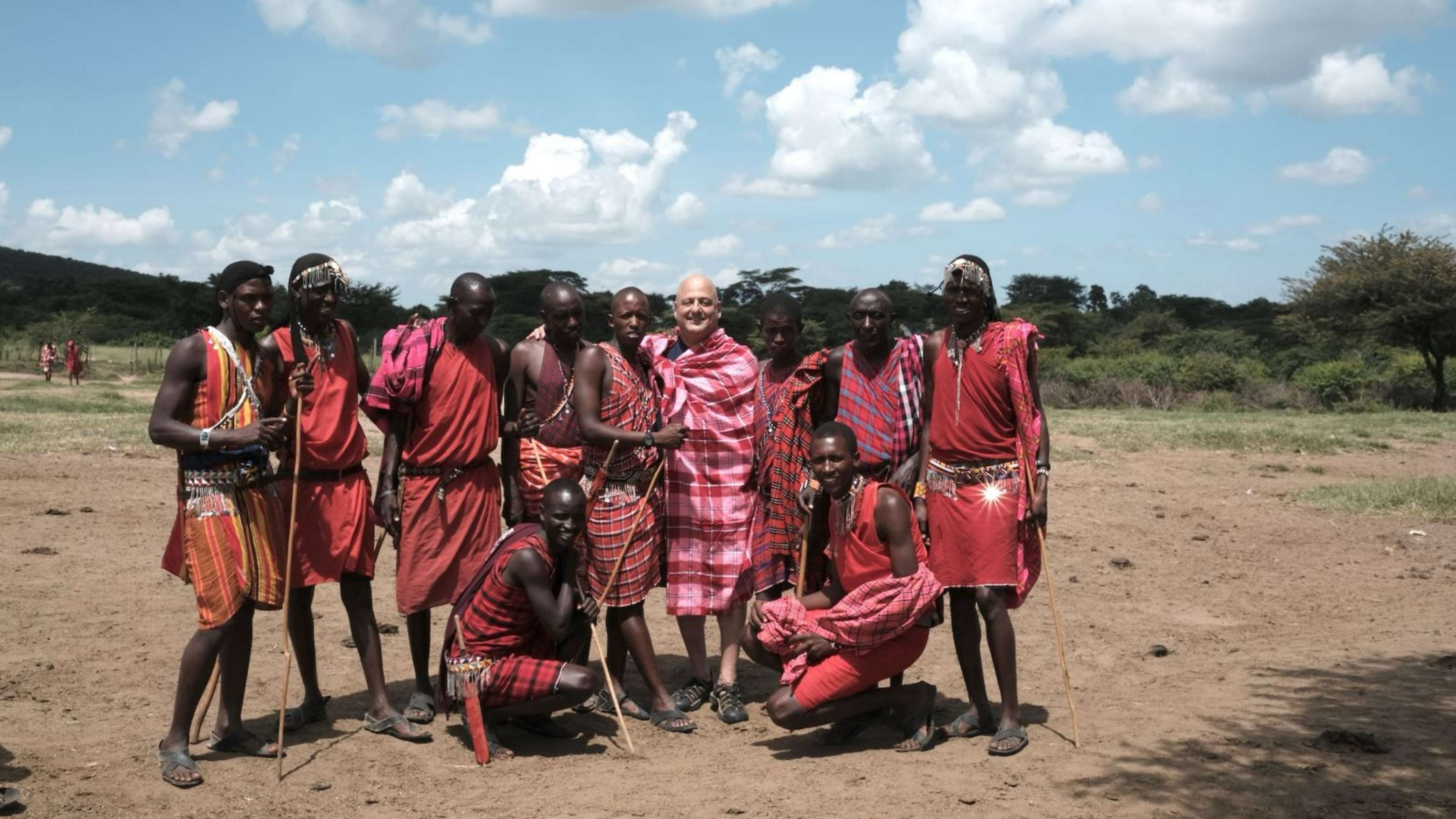
Chef Akerkar's travel experiences have shaped the way he thinks about flavour and memory at the table.
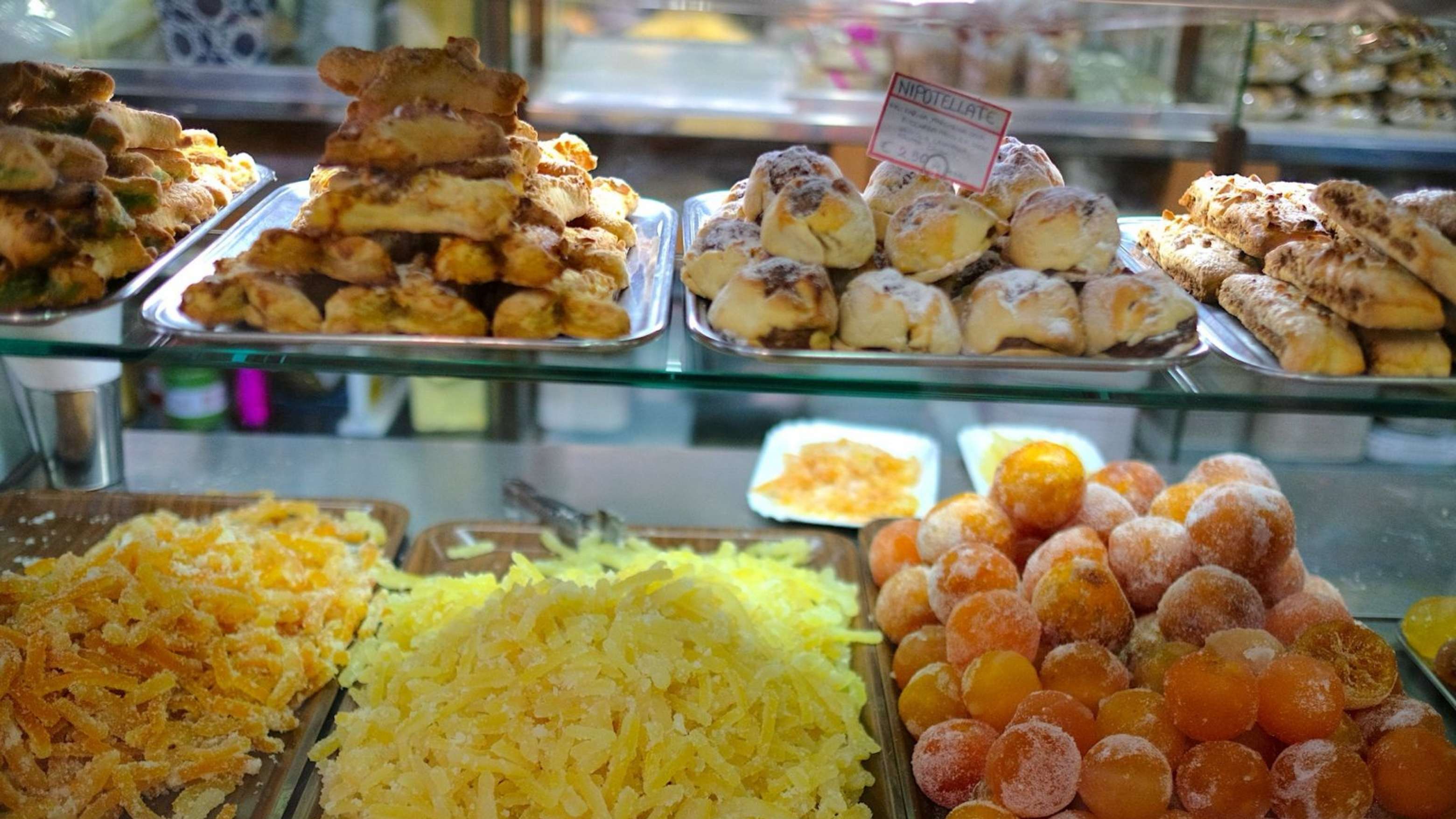
Wherever he roams, he seeks a story in every bite — to taste, explore, and uncover new flavours.
Is there any dish that feels as much as its tastes — like your own personal postcard to a city or person?
Food is always a postcard for me — a way to remember a place, a person, or a moment. Each dish holds a thread of memory, even if it’s subtle.
Have you ever tasted something abroad that you knew instantly you had to reimagine for Ode?
Absolutely. Inspiration doesn’t only come from international travels — many of my most memorable sparks have been right here at home. The first time I tasted panchamruth, I immediately thought of pairing it with pork chops, and then refined it to suit Ode’s style. Similarly, a dish from Anubhuti’s menu at Waarsa, the kaddu with red chilli and aamchur, stayed with me — I knew it would pair beautifully alongside duck. Whether abroad or in India, flavours have a way of surprising you, and when they truly resonate, they stay with you and eventually might find their way onto a menu.
Which was harder: sourcing ingredients true to your travels, or adapting them to local palates?
For me, it’s never been about importing ingredients. I prefer using what’s local and cooking in the style of a cuisine, rather than mimicking it outright. Adapting isn’t a compromise — it’s an evolution, making the dish authentic to both the memory and the context we serve it in.
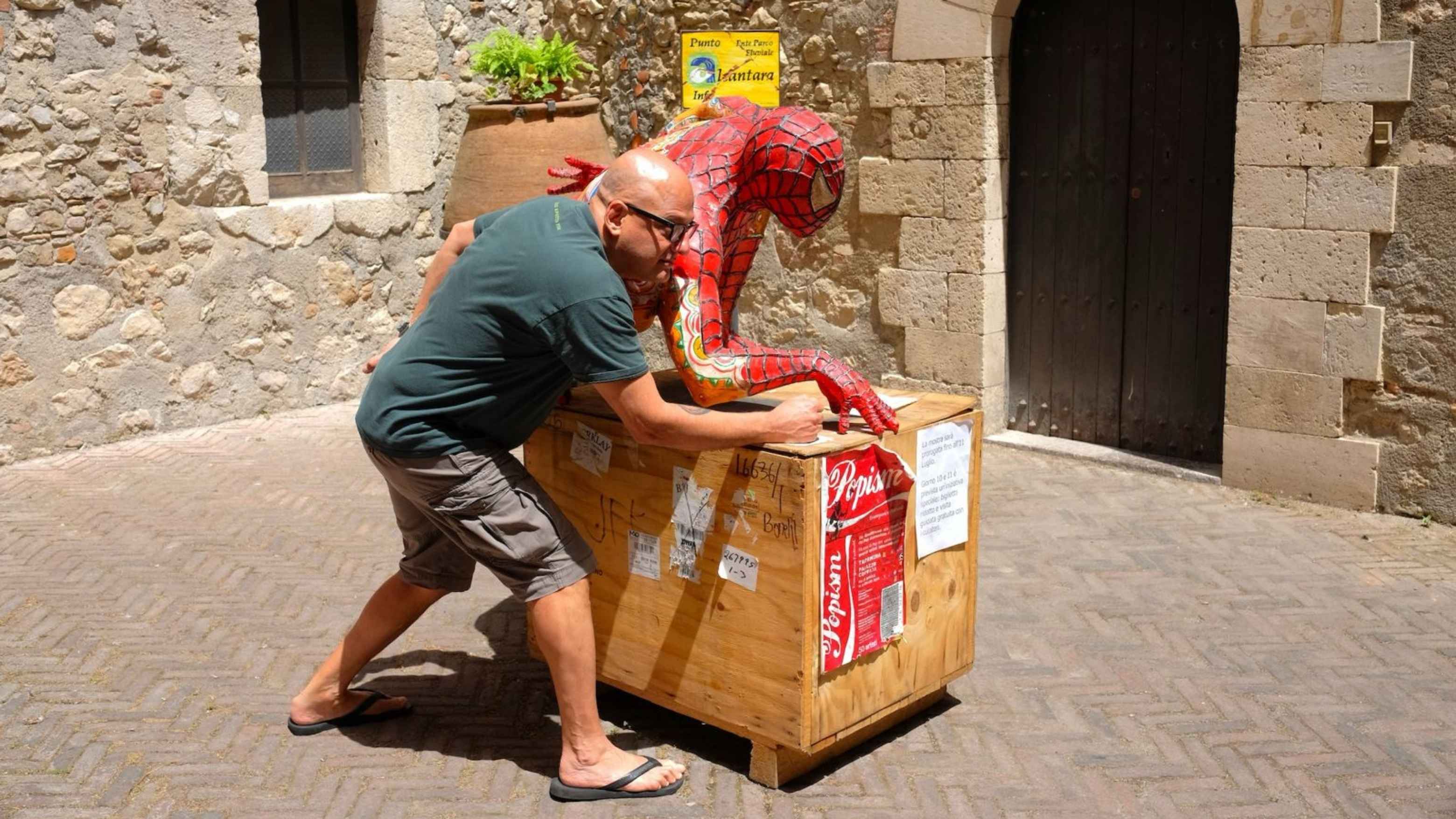
He believes that food can transcend borders when it’s rooted in emotion and flavour.
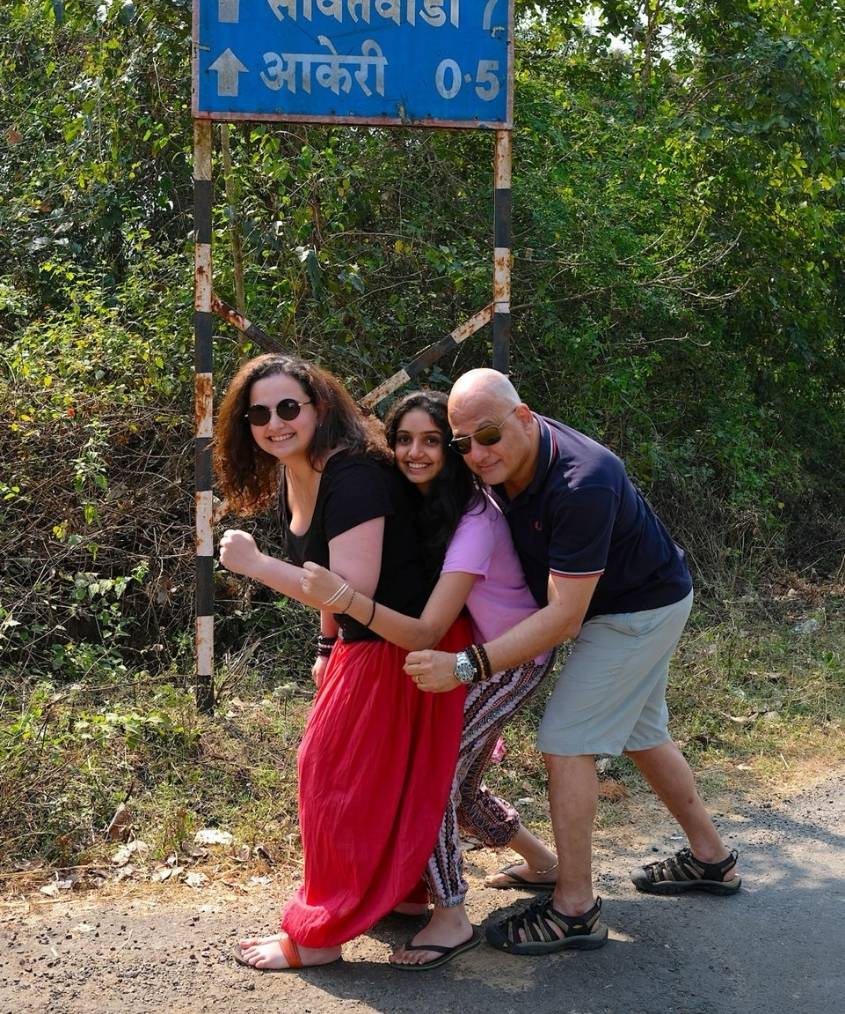
For him, food is a postcard — each dish a subtle thread weaving memories of places, people, and moments.
Familiar flavours can be deeply personal — which is that one dish that stayed with you the longest before making it to Ode?
Some dishes take years to find their right moment, but for this menu, the process was more fluid — it’s an unfolding journey rather than a single long-held memory.
What do you think are the moments that bring people together around a table?
Conversations, laughter, and the act of sharing. A table is where one’s heritage is passed down and experiences are exchanged. At my own home, food always took centre stage — we’d eat early, talk late, and let everything else flow around the meal. That spirit of gathering is what I try to bring to Ode.
Which of your trips sparked the most surprising dish on Ode’s menu — and what’s the story behind it?
Karavalli in Bangalore, where I ate often, used to do Ulli Theeyal, a delicious caramelised button onion curry with coconut, on their Malabari thali. What a revelation that was. The warm earthy, umami-rich spice flavours made me think how fabulously it’d pair with grilled red meat — and so was born our Steak with Ulli Theeyal on Ode’s new menu. It reinforced in me the belief that food can transcend borders when it’s rooted in emotion and flavour. That memory inspired one of the surprising turns in this menu.
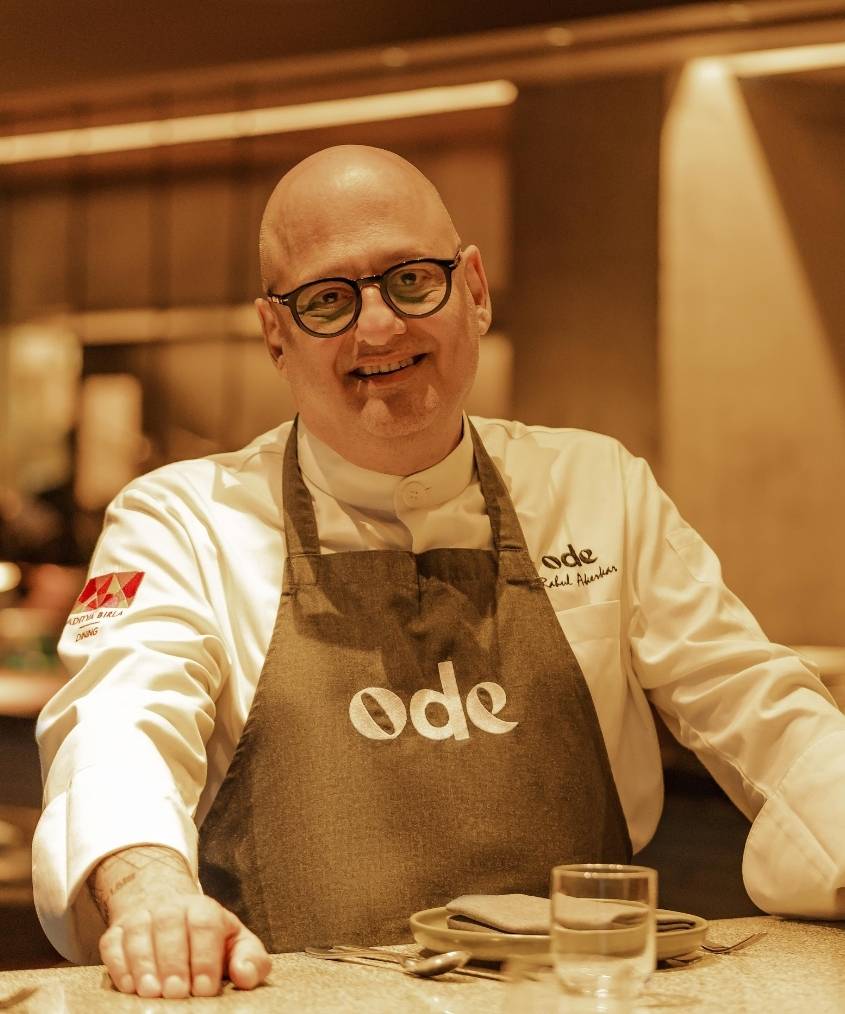
For Chef Rahul Akerkar, cooking isn’t about theatrics — it’s about connection.
Fast Talk with Chef:
A dish that’ll start a conversation between strangers
I think it’s the menu as a whole — interesting, intriguing, layered — that invites curiosity and sparks conversations.
One that carries a quiet sentiment
Bucatini Peperone ‘Carbonara’. My wife’s vegetarian. So when we travelled through Italy, carbonara was never on the table. This one’s for her. We use roasted yellow peppers and ricotta — not as substitutes, but as their own thing. Paired with the Newtonian — a mix of J&B Rare, apple shrub, rooibos, hazelnut, and lime — the dish’s warmth is echoed and edged by just the right amount of acidity.
A personal favourite dish
I’d go for the duck salad any day — and probably finish with the truffle crème brûlée, just to indulge.

















